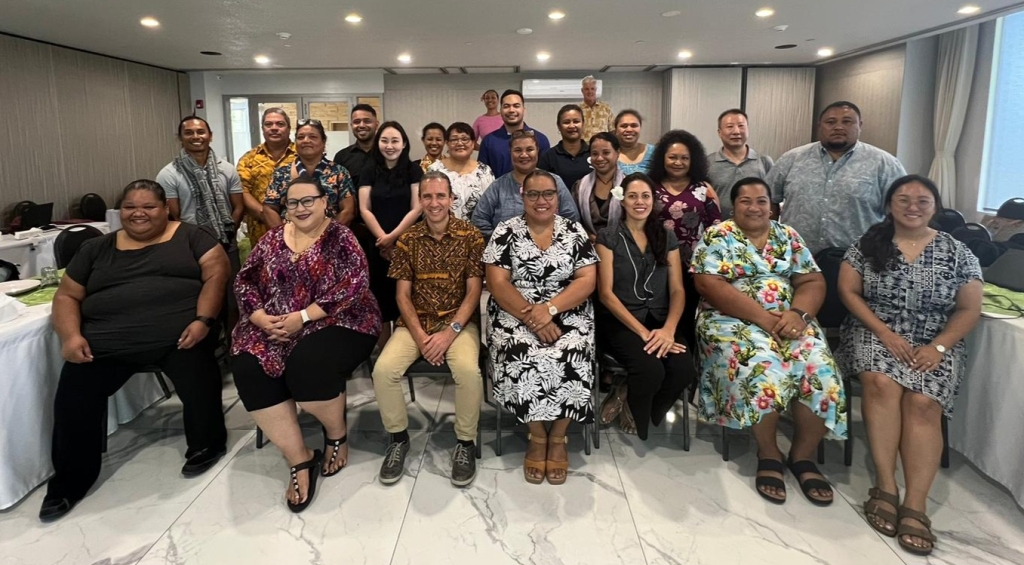
26 March 2023, Koror Palau - Representatives from the Cook Islands, Niue, Palau, Republic of the Marshall Islands, and Tuvalu gathered in Koror, Palau, from 19-23 February 2024 to advance and improve climate information and knowledge services, helping their communities become more resilient to the challenges posed by climate change.
The gathering, hosted under the "Enhancing Climate Information and Knowledge Services for Resilience in 5 Pacific Island Countries (UNEP CIS-Pac5)" programme, funded by the Green Climate Fund (GCF), marked the 5th Programme Steering Committee meeting.
The United Nations Environment Programme (UNEP), serving as the accredited entity, orchestrated the gathering, in collaboration with the Secretariat of the Pacific Regional Environment Programme (SPREP) and other partners, focusing on a shared ambition: bolstering climate resilience through enhanced climate services.
“Climate change remains the biggest challenge of our time and for us as a nation, we need all the help we can get to address this issue. Gatherings like the one we have had in Palau are extremely important in our collective effort to help our communities be more resilient and adaptable to climate change,” said Mr Thomas Zackious, of the Republic of the Marshall Islands.
Throughout the week, discussions revolved around reviewing the achievements of the project in 2023. Amongst the highlights was engagement of national environment, climate change, meteorological services and related stakeholders on collating and sharing data for effective climate response in Tuvalu and RMI.

Recommendations from the mid-term evaluation, addressing challenges, and laying out the plans for 2024 were also discussed. Special emphasis was placed on improving forecasting, data collection, and early warning systems to better anticipate and mitigate climate risks.
“For SPREP as a regional technical partner in the project, a core component of the meeting was addressing the programme’s mid-term evaluation, pointing out opportunities to deepen engagement with local communities and stakeholders to ensure the resilience initiatives have a lasting impact,” said SPREP’s Environmental Monitoring and Reporting Adviser, Mr Vainuupo Jungblut.
As part of the meeting, field visits showcased the tangible progress already made, like the automated weather stations in Palau, emphasising the real-world application of these efforts.
The week concluded with the Committee endorsing the 2024 Ation Plan and operational changes designed to enhance stakeholder engagement and monitoring.
This commitment underscored the collective determination to maximise the resilience of Pacific communities and ecosystems against climate change.